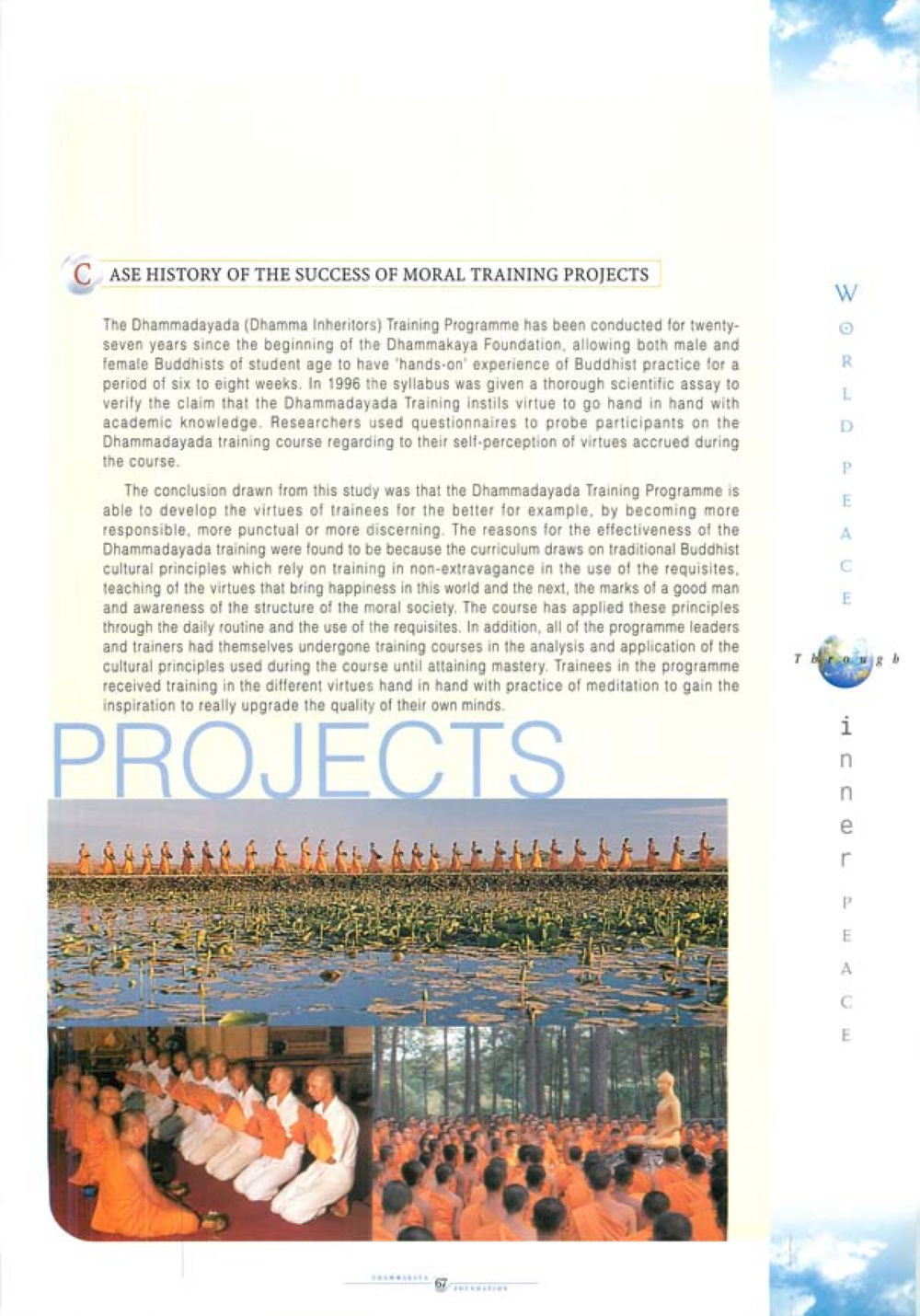Success of Moral Training Projects: Dhammadayada Program : หน้า 69/91
World Peace Through inner peac : หน้า 69/91 Explore the impact of the Dhammadayada Training Programme, enhancing virtues and academic knowledge through Buddhist principles.
0 ครั้ง

สรุปเนื้อหา
The Dhammadayada Training Programme has operated for twenty-seven years, focusing on hands-on Buddhist practice for students. In 1996, the program was scientifically assessed, revealing that participants reported significant virtues development, such as responsibility and discernment. The training combines traditional Buddhist principles, emphasizing non-extravagance and moral society awareness, to foster personal growth. Participants practice meditation alongside moral teachings, developing their minds' quality. The study confirms the program's success in instilling practical virtues, creating a positive impact on trainees' lives. More details can be found at dmc.tv.
หัวข้อประเด็น
-Dhammadayada Training Programme
-Impact of Buddhist principles
-Scientific assessment of moral training
-Virtue development in students
-Importance of meditation alongside training



























































































